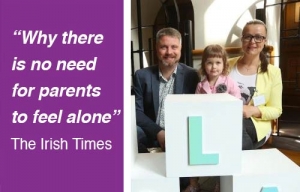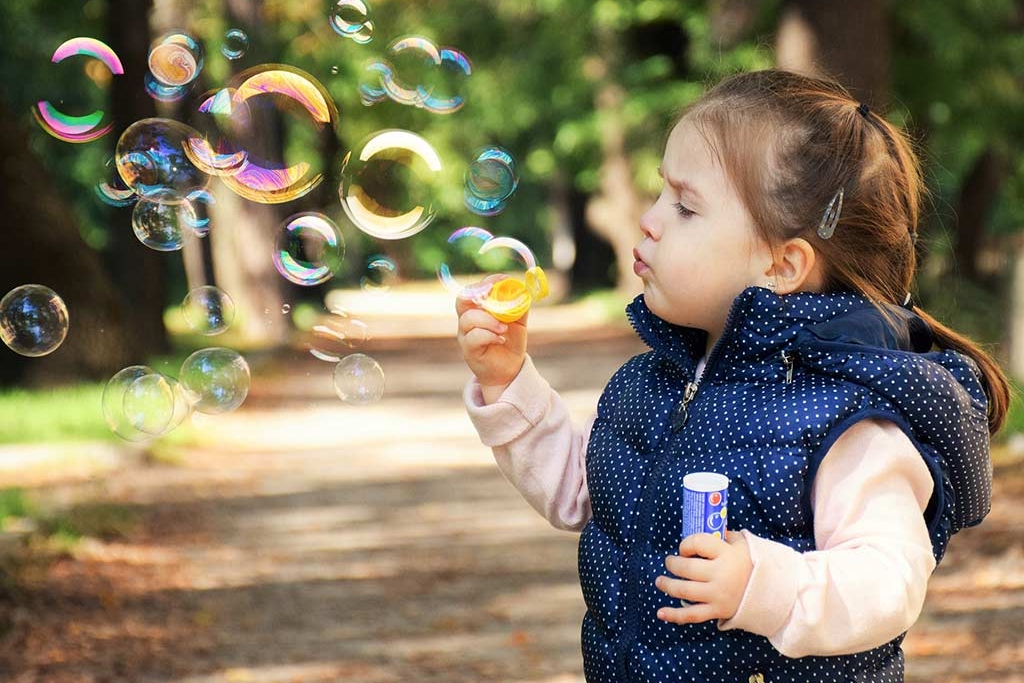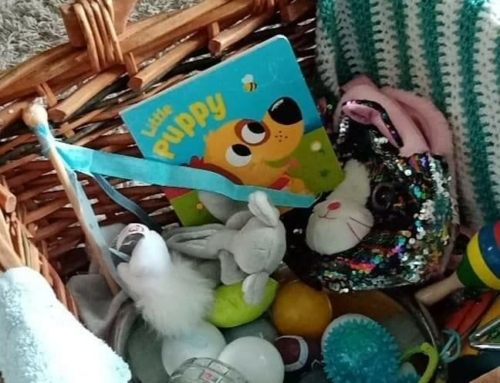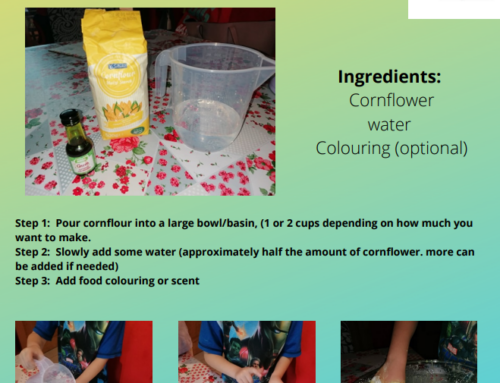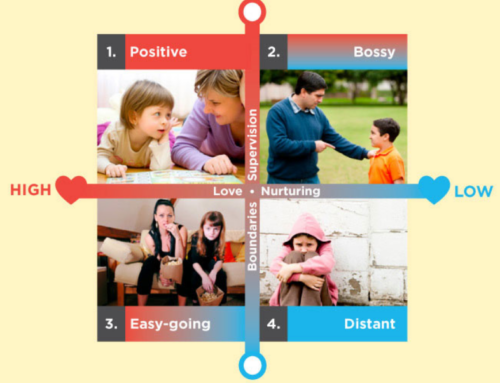- Tummy Time enhances head and neck control, muscle tone, body awareness and encourages the correct progression of physical development from the head down to the feet and from the centre outwards
- Responding to your baby teaches your baby about trust. Repetition of events shows them what to expect and what will happen next
- Movement is your child’s first language. Moving is learning, so encourage free play periods and gently roll your baby from side to side.
- Use classical music and other forms of music and rhythm, to encourage your baby’s senses to work together; this also helps to stimulate speech and an understanding of pitches and tones.
- Talk to Your Baby! The rhythm, melody, pitch and tone of your voice encourages baby to respond and babble, this helps them get a feel for sounds and words
- Use books that incorporate short rhyming sentences and words to encourage tuneful vocalising and melodic speech. Books with real pictures are more meaningful for babies and young children.
- Teach your baby the first principles of conversation by taking turns when talking and leaving gaps for baby to respond. Lots of practice with babbling and conversation builds up the tongue, lips and throat muscles and also introduces listening skills.
- Introduce play sounds, high and low pitches, eye contact, animation, finger point, point and say and naming games to help your child’ language development
- Encourage independence by allowing children to do what they can for themselves and support them when they can’t
- Children have a natural curiosity which should be encouraged by providing a safe and secure environment so that children can explore
- Children learn through play. At this stage introduce direction and instruction in a fun way, so that your child becomes highly motivated to learn.
- Children learn through play. At this stage introduce direction and instruction in a fun way, so that your child becomes highly motivated to learn.
- Children learn through play. Introduce direction and instruction in a fun way, so that your child becomes highly motivated to learn
- It is important for you as a parent to develop your observation skills, so that expectations of growth are in accordance with your child’s personality and ability
- Self-concept is the way we think about ourselves. A toddler’s self-concept is determined mostly by the ‘messages’ received from others, particularly parents
- Introduce the expansion technique for improving speech by developing a child’s words into a full sentence. Play ‘Point and Say’ and use cues and actions to help understanding
- Children do not develop at the same rate nor do they develop evenly in all areas. It is important to provide children with lots of different experiences to promote balanced development.
- One of the secrets of good parenting is having the ability to recognise and respect the specific strengthens of each child’s temperament and helping the child to broaden his/her ways of adjusting to and dealing with the realities of the world.
- Encourage your child’s independence by balancing help and intervention with space and time to do it themselves; this will encourage their motivation to learn
- Remember! Nothing (educational toy or screen) can teach language like a parent can. Talk and read with your child to encourage and develop good speech, language and communication skills.
- A very young child is guided more by their sense of touch, than by their sense of sight therefore their hand and touch will guide their eye rather than the eye guiding the hand. Give child lots of opportunities to touch and feel new objects of all shapes and sizes.
- Positive discipline rewards good behaviour rather than punishing undesirable behaviour
- Young children are ‘trial and error’ experimenters but as they develop they are able to combine two or more ideas in their head. Help them to develop their deductive thought processes through play and conversation e.g. ‘Where did your dinner go? Oh I know, you ate it!’
- A positive attitude leads to more effective parenting, as it will determine how a parent perceives their child’s behaviour and how they react to that behaviour. A parent’s attitude will also affects how a child will respond and learn
- How parents help their child will impact of a child’s developing independence; it is important to break down tasks into stages, encouraging a child to complete the easiest part of the task unaided
- At two years your child uses all five senses to communicate. Encourage this by providing lots of opportunities to improve vision, hearing, touch, taste and smell.
- Passive dependence develops into active independence due to increased movement skills, newly emerging social skills and improved language ability. Provide plenty of opportunities for your child to succeed in these areas.
- Parents are generally their child’s first educator and a child’s most important resource for developing a love of reading. Read with your child every day, helping to create lifelong readers and learners
- One of the most important skills a child can learn is the ability to make decisions. Making decisions requires careful reasoning, good judgement and awareness of consequence. Play games that involve decision making to enhance your child’s skills in this area.
- Every child has the potential to love and enjoy art and beginning at an early age encourages creativity, imagination and discovery
- Engaging in ‘make believe’ play is one of the best ways to practice language skills, manage feelings, understand family roles and enhance self-identity. It is by participating in the world of ‘make believe’ that your child learns to participate in the world around them as they grow and develop
- Help to develop your child’s concentration and thinking skills by playing matching games. Matching by touch and vision instead of vision alone passes information from one sense to another further maturing your child’s concentration, attention skills and to develop the ability to hold a mental picture
- Helping your child develop gender concepts is an important element in your child’s development of a positive self-concept. It is important for parents to be aware of the influence of family, peers and media. Take steps to ensure your child develops a healthy and inclusive respect for people regardless of gender
- It is important to be able to distinguish between your child’s needs and wants. Needs must be met for your child’s development and wellbeing. Wants may be considered but not granted. Place appropriate limits on their wants, helping your child learn self-control and understanding
- Very young children cannot see the world from another’s point of view and find it difficult to understand others’ feelings. Developing friendships with their peers will help them to understand others and develop social skills necessary for a richer and happier life.
- A good learning environment does not require expensive equipment, everyday household items, especially when used in a creative way can be a child’s best learning tool.
- Involve your child in your daily activities, even at the expense of neatness and efficiency. This will provide them with great real-life experiences and help them to develop a positive self-concept
- Conflict and disagreement during play are an important part of social development. When children disagree they learn there is another perspective which is different from their own
- Be aware of your child’s stage of development; what they can and cannot do and what they can and cannot understand. This will enable you to gently inspire them to reach more advanced levels of thinking
- By giving children responsibilities within a loving home environment you are helping to build their confidence, resilience and enabling them to become socially responsible

